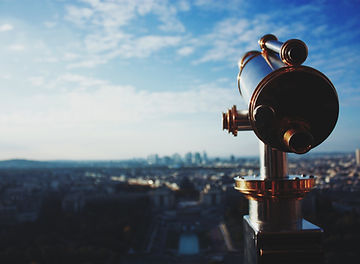


History of Galileo
Galileo's discoveries changed the world he lived in, and the world we live in today. From our comfortable modern worldview it may be hard to understand some of the intricacies of a 1600s mindset so let's explore the world of Galileo and the specific's of the discoveries he made.

Church as State
Through most of the middle ages the catholic church had a strong grip on every institution in the western world. While most frequently the church did not directly own land or make laws, the strict adherence to faith often meant any ruler who strayed from the church's teachings would leave themselves open to attack from their neighbors or even subject to a crusade. In most cases the church's authority was considered absolute.
The Protestant Reformation
The protestant reformation marked a turning point in religious control. 100 years before Galileo a splinter of Christianity decided, it was no longer acceptable to follow the teachings of the Catholic church, where only those educated in Latin could interpret the bible. The new faith was in the hands of ordinary people who could for the first time read the bible and come to their own conclusions. Accelerated by the printing press, the Catholic Church's control over Europe was destined to collapse. Though in Italy, France, and Spain where the vestiges of the Holy Roman Empire still lived, it tightened it's grip to retain control. Eagle eyed audience members may even see a book of heresy on the stage.


The Divine Aristotle
There is debate how a pagan pre-christian philosopher came to have so much sway over beliefs of many in the catholic church. Though Brecht implies that the church provided a united front on the teachings of Aristotle in reality there was division even in it's time. Many thought a pagan had nothing to offer good Christians. However, his theory that the earth was at the center of transparent "crystal spheres" on which the stars in the sky were fixed survived for centuries as scientific fact.
Phases of Venus
It's now a well accepted and observable fact that venus has phases much like our own moon. Galileo's discovery of the phases of Venus was one of the two major discoveries he made that disproved the Ptolemaic system, the belief that the earth is the center of the universe. Essentially, if Venus rotated around the earth, as the Ptolemaic system suggests these phases would be impossible. This discovery was only made possible due to the invention of the telescope allowing a much clearer view of the solar system.

Moons of Jupiter

The discovery of the moons of Jupiter was the second discovery of Galileo that strictly disproved the Ptolemaic system. By observing their movements it became clear that these celestial bodies orbited a foreign body. This both proved that the Earth was not the only body to have natural satellites., but also that the existence of the mythical "crystal spheres" was impossible as such orbiting bodies would crash through them. Ultimately it was these two discoveries that would lead to Galileo's battles with the church, who had set themselves up as the infallible voice of god. They could not be proven wrong, and must also be the center of the universe the chief power not only of Earth but also of the entire universe.
The Telescope
As we see in this play, Galileo did not in fact invent the telescope but stole the idea, though there is some debate as to the actual inventor, the most widely accepted is Hans Lippershey a Dutch lensmaker. This invention, as with many others in this period and even today, changed the entire landscape of our understanding of the universe. The big splash in the scientific world led to ripples across society, leading the changes both big and small in a rapidly changing world. A quintessential invention of the age of discovery.
